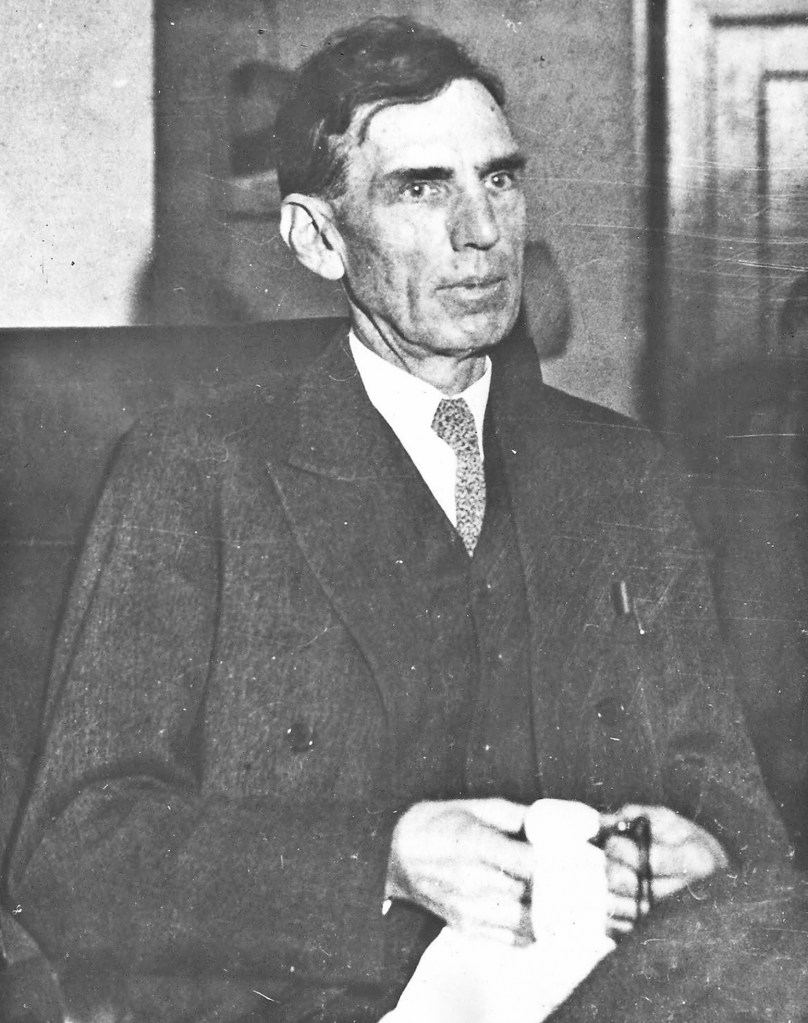UPDATED: Trump signs Horton post office bill
Published 6:30 am Saturday, January 5, 2019

- Judge James Edwin Horton will be celebrated Wednesday in a program, “Pen Strokes of Justice,” at the Center for Lifelong Learning in Athens. Admission is free, but donations are sought for a project to install a life-size statute of Horton outside the Limestone County Courthouse.
President Donald Trump this week signed a bill into law to rename the Athens post office as the Judge James E. Horton, Jr. Post Office Building.
The announcement was made Friday by U.S. Rep. Mo Brooks, R-5th. Brooks was the original sponsor of the bill, which had bipartisan support in both the House and Senate.
Trending
“Thankful @realDonaldTrump signed into law my bill naming the Athens Post Office for Judge James E. Horton Jr., who took a stand against extreme racial prejudice that risked and ended his judicial career,” read a tweet from Brooks following the announcement.
Brooks introduced the initial bill, H.R. 6513, in July. It was co-sponsored by each of the six U.S. representatives from Alabama.
It was unknown Friday when the post office would be officially rechristened with new signage. A call to a United States Postal Service spokesperson was not immediately returned.
Horton, who was honored last year with a statue at the Limestone County Courthouse, set aside a guilty verdict against Haywood Patterson, one of the Scottsboro Boys, and ordered a new trial. The unpopular decision ultimately ended Horton’s political career.
Athens Mayor Ronnie Marks said he was excited about the announcement, and regarded the honor as one that is “long overdue.” He noted Athens City Hall sits on land where Horton’s home once stood, and that the mayor’s office is where Horton’s bedroom would have been.
“He walked from here to the (Limestone County) Courthouse to make that decision,” Marks said.
Trending
The mayor also expressed pride that lawmakers who may have philosophical differences came together on this issue. He believes the timing of the announcement is also important as the observance of Dr. Martin Luther King’s birthday approaches.
“This was important for the civil rights movement,” Marks said of Horton’s decision.
Retired Limestone County Circuit Judge Jimmy Woodroof Jr., who chaired the Horton statue committee, said he was very pleased by the news the post office would be renamed. When asked what Horton would have thought of the honor, Woodroof explained Horton was a humble man, as are the surviving members of his family.
“I think it was hard for the family at first to be getting all this acclaim, but once they realized the magnitude of his decision, it was easier for them to accept it,” Woodroof said.
When asked if there would be any other efforts to share Horton’s legacy with Limestone Countians, Woodroof said there have been early discussions about a possible day honoring Horton, which could involve sharing his story with young students.
Like Marks, Woodroof was excited by the bipartisan support for the measure.
“In this day and age, it’s wonderful we can come together and stand for justice,” he said. “The fact (Horton) is ours and we can claim him, that’s really something.”
Other postal efforts
Previously, local residents Erich Snoke and John Davis had sought to have a U.S. stamp made to honor the judge’s legacy.
“It’s something that just sort of came into mind, and I thought it would be kind of nice — not only for the judge and the family, but for northern Alabama and the state of Alabama,” Snoke told The News Courier last March.
However, the process to get a stamp approved can take years, so Davis sent copies of the stamp submission packet to U.S. senators and people he knew in Athens in hopes of speeding up the process.
Several months later, Brooks offered his resolution in the House.
About Horton
Horton was born Jan. 4, 1878, in Limestone County. Despite having no formal education until he was 8 or 9 years old, Horton was accepted to Vanderbilt University’s medical studies program and later to Cumberland University, where he earned his bachelor’s and law degrees.
Horton served in the Alabama Legislature until he took a Limestone County chancery court position. Thereafter, he was elected circuit court judge for Alabama’s Eighth Judicial Circuit. After re-election to a second term, Judge Horton was appointed to preside over the retrials of the highly controversial Scottsboro Boys cases.
The cases involved nine African-Americans, ages 13 to 20, accused of raping two white women on a train in 1931 as it traveled through Scottsboro and Jackson County. In the first trials, eight of nine defendants were found guilty and sentenced to death, verdicts later reversed by the United States Supreme Court. After a guilty verdict and death sentence during the second set of Scottsboro Boys trials, Horton set aside the jury’s guilty verdict and ordered a new trial for Patterson.
In 2013, the Scottsboro Boys were formally pardoned under Alabama law.






